|
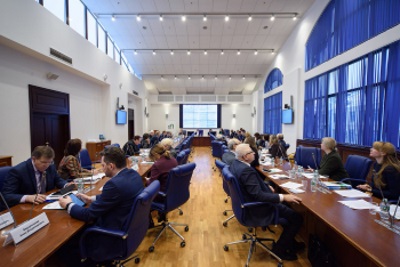 On January 30, 2018, the
Higher School of Economics hosted the 2nd conference “SDGs Adaptation to Conditions and
Priorities of Russian Cities and Towns”. The conference was organized by
NRU HSE and SGM Agency and supported by the Local Network of the UN Global
Compact and the Union of Russian Cities. On January 30, 2018, the
Higher School of Economics hosted the 2nd conference “SDGs Adaptation to Conditions and
Priorities of Russian Cities and Towns”. The conference was organized by
NRU HSE and SGM Agency and supported by the Local Network of the UN Global
Compact and the Union of Russian Cities.
The first conference on the
issues related to the sustainable development had been organized by the NRU HSE
and SGM Agency in cooperation with the partners and had taken place in May,
2017. It was devoted to the tools
for external assessment of cities and towns.
The conference organizers aimed
at bringing together representatives of key stakeholders and discussing
opportunities to integrate Sustainable Development Goals (SDGs) to strategic
documents of cities and regions, prospects of forming a system of statistical data
to monitor SDGs and their implementation in Russian educational programs.
SDGs discussion in such
context was supported by the representatives of RSPP, Rosstat, Department of
Natural Resources of Moscow, Union of Russian Cities, Center for Strategic Research
(CSR), experts of leading research and scientific organizations on regional
development, urban planning, representatives of educational entities, business
and NGOs.
“Urban development is a
component of a wide range of issues of public and municipal management. Extent
of success in urban development will depend on the attention paid to SDGs, our
economic development will depend on it significantly”, noted Andrey Klimenko,
Director of the Public and Municipal management Institute of NRU HSE.
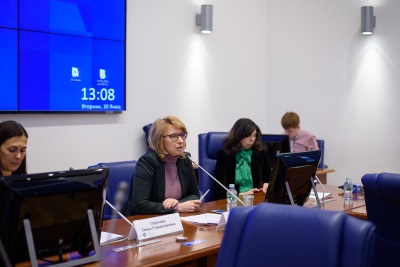 Alexander Bychkov, Chair of
the SGM Agency Board of Directors, highlighted the particular relevance of
bringing such an expert community to a single platform, considering that SDGs
implementation at a national level in Russia are still being elaborated and
that broad discussions on the topic would help to prioritize SDGs use while
doing strategic planning of cities and regions and widen a dialogue on
sustainable development. Alexander Bychkov, Chair of
the SGM Agency Board of Directors, highlighted the particular relevance of
bringing such an expert community to a single platform, considering that SDGs
implementation at a national level in Russia are still being elaborated and
that broad discussions on the topic would help to prioritize SDGs use while
doing strategic planning of cities and regions and widen a dialogue on
sustainable development.
Session one
Within the first session of
the Conference existing problems of urban development in relation to the SDGs were discussed. Reports were
presented by Irina
Ilyina (NRU HSE), Elena Dolgikh (SGM Agency), Larisa Ovchinnikova (Local
Network of the UN Global Compact), Alexandra Ignatyeva (Union of Russian
Cities) and Milana Verkhunova (Organizational Committee of FIFA-2018).
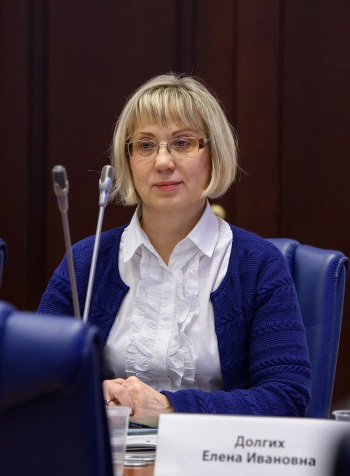 Elena Dolgikh, Director General
of SGM Agency, presented results of Sustainable Cities Index for Russian cities in 2016 and
analyzed dynamics for four years. The Agency has published five issues of
sustainable development of Russian cities. Methodology of the rating is formed
according to the principles of territorial sustainable development, defined by
international organizations and scientific community, considers transparency of
statistical data, completeness of information, maximum relevance of indicators
and suggests compulsory discussion of rating results with the wide range of
stakeholders. Application of
international methodology for assessing urban development in Russia is
substantially limited, since the system of indicators of municipal statistics
currently collected by Rosstat does not yet meet international standards and
modern technological trends in urban development in full extent. Elena Dolgikh, Director General
of SGM Agency, presented results of Sustainable Cities Index for Russian cities in 2016 and
analyzed dynamics for four years. The Agency has published five issues of
sustainable development of Russian cities. Methodology of the rating is formed
according to the principles of territorial sustainable development, defined by
international organizations and scientific community, considers transparency of
statistical data, completeness of information, maximum relevance of indicators
and suggests compulsory discussion of rating results with the wide range of
stakeholders. Application of
international methodology for assessing urban development in Russia is
substantially limited, since the system of indicators of municipal statistics
currently collected by Rosstat does not yet meet international standards and
modern technological trends in urban development in full extent.
Rating for 2016 was
composed for 185 cities of the Russian Federation, population of which exceeds
100 thousand people (overall Russia comprises 1112 cities and towns). Positions
in the ratings are determined based on 42 indicators assessing three key areas
of sustainable development - economic, environmental and social (including a
demographic one). This year, the composition of rating indicators was extended
by 11 indicators due to regional statistics data.
Second session
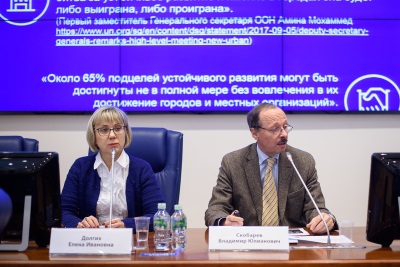 The second session of the Conference
was focused on the mechanisms of assessing SDGs in Russia. Within the session
the reports were delivered by Sergey Bobylev (Economic Faculty of the LMSU),
Natalya Trunova (CSR), Vladimir Skobarev (FBC “Grant Thornton”), Elena
Feoktistova (Russian Union of Industrialists and Entrepreneurs), Vera Smirnova (PwC) and Nataya
Ignatova (Rosstat). The second session of the Conference
was focused on the mechanisms of assessing SDGs in Russia. Within the session
the reports were delivered by Sergey Bobylev (Economic Faculty of the LMSU),
Natalya Trunova (CSR), Vladimir Skobarev (FBC “Grant Thornton”), Elena
Feoktistova (Russian Union of Industrialists and Entrepreneurs), Vera Smirnova (PwC) and Nataya
Ignatova (Rosstat).
In the course of his presentation,
Vladimir Skobarev analyzed
the directions of work on the integration of the UN SDGs into sustainable
development strategies at the regional and municipal levels. He stressed the
necessity to ensure integration of the UN SDGs indicators into the cities
development strategy, management and reporting systems.
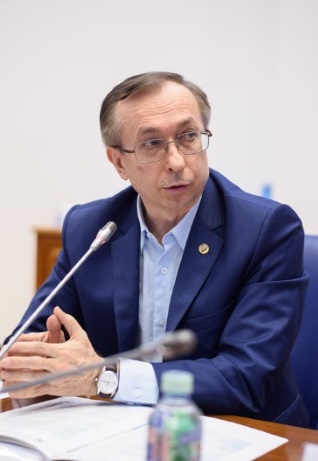 Elena Feoktistova, Managing
Director for Corporate Responsibility, Sustainable Development and Social
Entrepreneurship of the Russian Union of Industrialists and Entrepreneurs,
noted in her speech that business plays significant role in achieving the SDGs.
Businesses are a powerful actors in the process of social and economic development, whose active participation is recognized
as a necessary condition for achieving these goals. Commitment to goals implies
a consistent and comprehensive implementation of the principles of sustainable
development in the activities of companies. Elena Feoktistova, Managing
Director for Corporate Responsibility, Sustainable Development and Social
Entrepreneurship of the Russian Union of Industrialists and Entrepreneurs,
noted in her speech that business plays significant role in achieving the SDGs.
Businesses are a powerful actors in the process of social and economic development, whose active participation is recognized
as a necessary condition for achieving these goals. Commitment to goals implies
a consistent and comprehensive implementation of the principles of sustainable
development in the activities of companies.
In his speech, Dr. Yuri Hohlov,
Head of Digital Economy Department of the Institute of the Information Society
at Plekhanov Russian University of Economics, drew attention to the significant impact of digital
technologies on the processes of sustainable development of the cities and the need to include indicators for assessment of the factors affecting
the processes of digital transformation in the monitoring system. Another
factor that influences the sustainable development of cities is the presence of
strong leadership and mature institutions, which should also be considered when
developing a conceptual framework for monitoring. |

